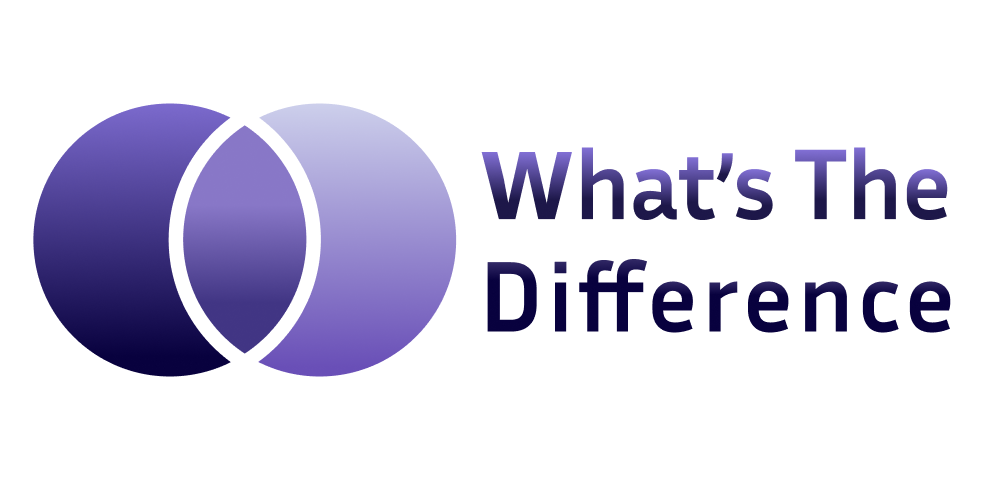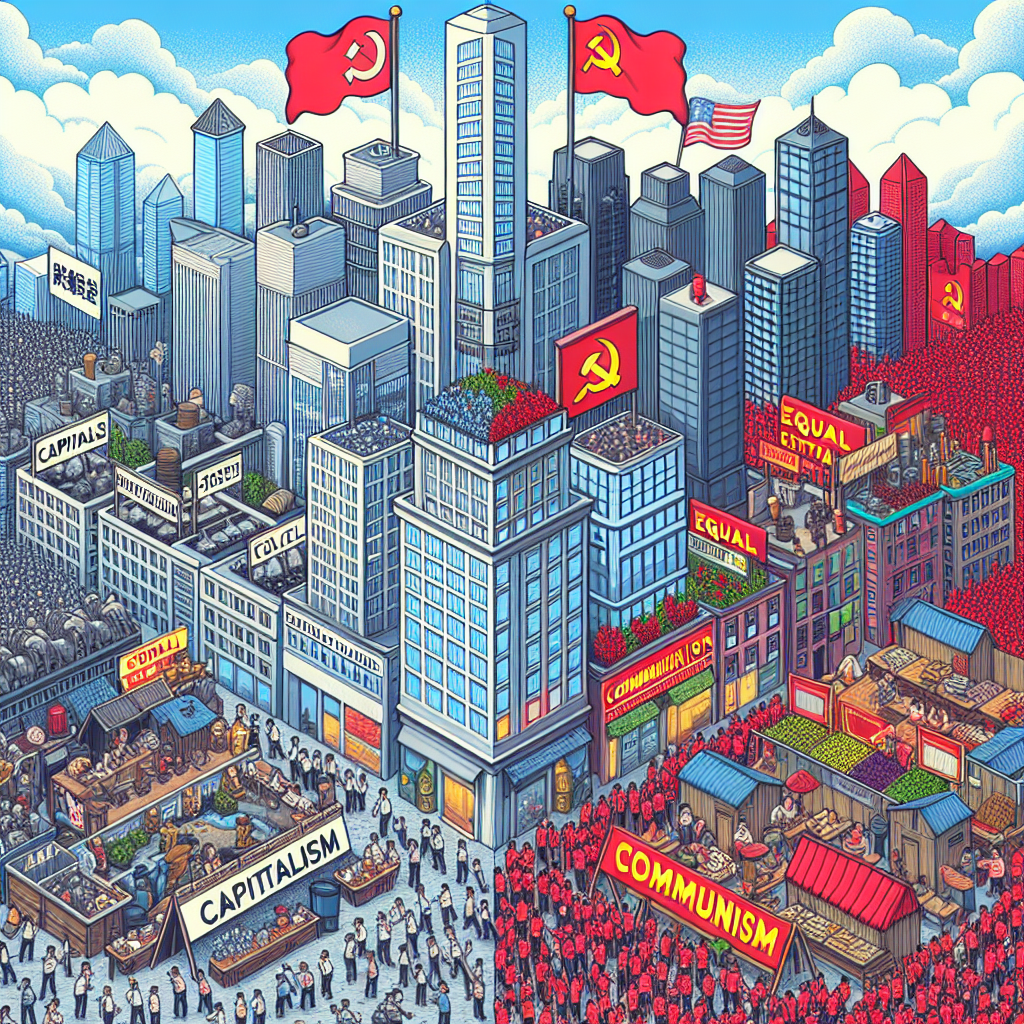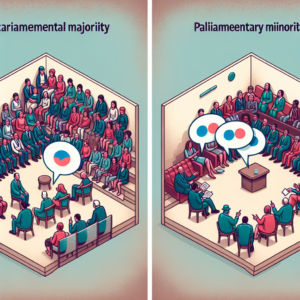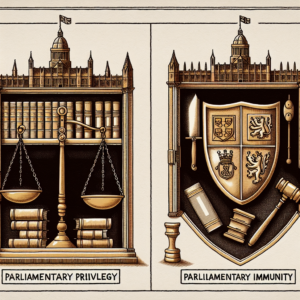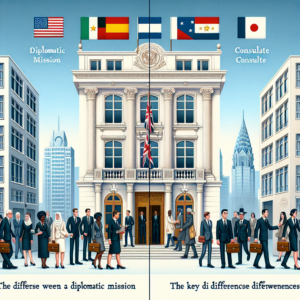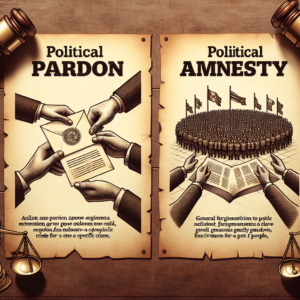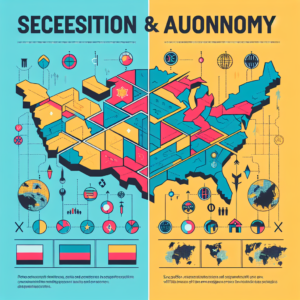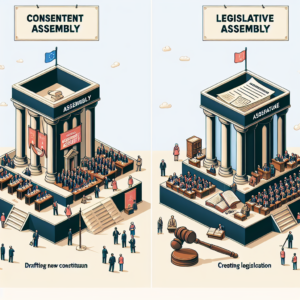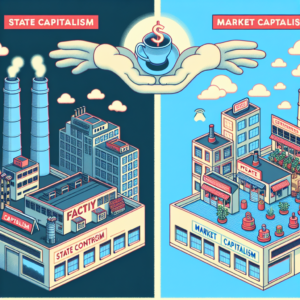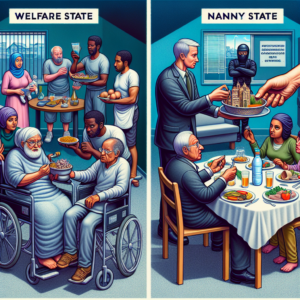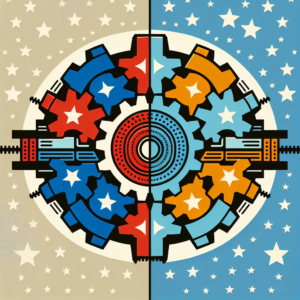Understanding different economic systems is key to comprehending the world’s diverse political landscapes and economies. Two of the most commonly discussed and contrasted systems are capitalism and communism. Each has a distinct set of principles and mechanisms that drive its operation. To fully grasp how these systems function, and their inherent differences, it is necessary to delve into their fundamental principles. So, what is the difference between capitalism and communism?
Understanding the Fundamentals of Capitalism
Capitalism is an economic system where private entities own and control the market. These players operate businesses based on the principle of profit maximization, driven by the laws of demand and supply. In capitalism, the government’s role is often limited to policy formulation and regulation, allowing a free market where businesses compete with each other, resulting in innovation and improved products and services. Individual freedom is critical in capitalism, as people can choose what to produce, sell, and buy.
The capitalist system places significant emphasis on voluntary transactions and competitive markets. Private property rights are paramount, allowing individuals and businesses full control over their assets and the ability to accumulate wealth. In this context, wealth distribution is not equal and depends on individual success and market dynamics. Furthermore, capitalism encourages competition and innovation, which can result in economic growth, but can also lead to economic disparities and monopolies.
What is the difference between the principles of capitalism and other economic models? The significant difference lies in the concept of individual freedom and the role of the government. In capitalism, the government’s role is minimal, and individuals or private entities are at the helm of economic decisions.
Exploring the Core Principles of Communism
Communism, on the other hand, is an economic system where all property is publicly owned, and each person works and is paid according to their abilities and needs. In a communist society, there is no private ownership; instead, everything belongs to the community as a whole. The government, or the community collectively, makes all economic decisions.
The central tenet of communism is the elimination of class divisions and equal distribution of wealth. This principle stems from the belief that discrepancies in wealth and class lead to social injustice. Thus, in communism, there is no room for income inequality or private wealth accumulation. The government’s role is extensive, determining production, distribution, and consumption.
What is the difference between communism and capitalism as economic models? Primarily, communism seeks to eliminate social disparities through government control, while capitalism encourages individualism and competition. In communism, the government has active involvement in the economy, contrasting with the limited role that government plays in a capitalist framework.
In conclusion, the difference between capitalism and communism lies primarily in their approach towards economic decisions, the role of the government, and the emphasis on individualism versus collective welfare. While capitalism promotes individual freedom, competition, and the accumulation of wealth, communism advocates for state control, classless society, and equal wealth distribution. Both systems have their merits and drawbacks, and their practical application often varies from their theoretical constructs. Understanding these differences is crucial for appreciating the diversity of economic systems across the globe.
